Fleurs du Mal Magazine


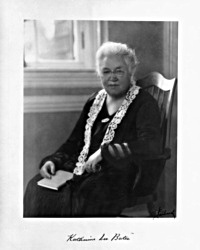
Katharine Lee Bates
(1859-1929)
The Great Twin Brethren
The battle will not cease
Till once again on those white steeds ye ride,
O heaven-descended Twins,
Before humanity’s bewildered host.
Our javelins
Fly wide,
And idle is our cannon’s boast.
Lead us, triumphant Brethren, Love and Peace.
A fairer Golden Fleece
Our more adventurous Argo fain would seek,
But save, O Sons of Jove,
Your blended light go with us, vain employ
It were to rove
This bleak,
Blind waste. To unimagined joy
Guide us, immortal Brethren, Love and Peace.
Katharine Lee Bates poetry
fleursdumal.nl magazine
More in: Archive A-B, CLASSIC POETRY

Het grootste poëziefeest van het jaar strijkt weer neer in de Grote Zaal van Tivoli-Vredenburg! 20 gevestigde dichters én nieuwe sterren aan het poëtisch firmament vertegenwoordigen gedurende één ‘Nacht’ het beste wat de Nederlandstalige dichtkunst in de brede zin te bieden heeft.
Muzikale en theatrale entr’actes nemen tijdens deze nachtelijke estafette het stokje meerdere malen over van de dichters. En het programma eindigt niet bij de deuren van de Grote Zaal. Strek even de benen, haal wat te drinken en wissel literaire en culinaire geneugten af in de vele rondgangen waar ook de traditionele boekenmarkt verrijst. Om vervolgens weer terug te keren naar de omarming van de Grote Zaal waar de dichters en het publiek, elkaar steeds dieper de Nacht in leiden. Gelijktijdig met de boekenmarkt vindt een presentatie van kleine uitgevers, literaire tijdschriften en organisaties plaats.
Dichters:
Jan Baeke
Charlotte Van den Broeck
Hans Dorrestijn
Charles Ducal
Anna Enquist
Eva Gerlach
Jonathan Griffioen
Tjitske Jansen
Mustafa Kör
Joke van Leeuwen
Bart Meuleman
K. Michel
Marlene van Niekerk
Roos Rebergen
Marieke Rijneveld
Astrid H. Roemer
F. Starik
Anne Vegter
Christophe Vekeman
Edward van de Vendel
Presentatoren: Piet Piryns & Ester Naomi Perquin
Traditioneel blijft geheim wie hoe laat optreedt. Altijd op de hoogte van het laatste nieuws? Schrijf je in voor de nieuwsbrief!
Goed om te weten: de ‘Nacht’ duurt van 20.00 tot ±03.00, maar het is geen standaard van A tot Z-programma: het evenement kent doorlopend een vrije inloop dus je bent vrij om te komen en te gaan wanneer je wilt.
34ste Nacht van de Poëzie
zaterdag 17 september 2016
TivoliVredenburg, Utrecht
# Meer info en kaartverkoop via website Nacht van de Poëzie
fleursdumal.nl magazine
More in: Art & Literature News, Jansen, Tjitske, Michel, K., MUSIC, Nacht van de Poëzie, POETRY ARCHIVE, Rijneveld, Marieke Lucas, THEATRE
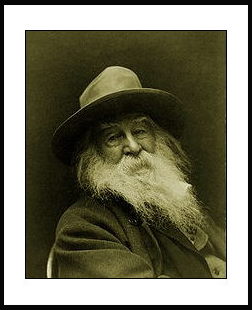
Walt Whitman
(1819 – 1892)
Satan
Aloof, dissatisfied, plotting revolt,
Comrade of criminals, brother of slaves,
Crafty, despised, a drudge, ignorant,
With sudra face and worn brow–black, but in the depths of my heart proud
as any;
Lifted, now and always, against whoever, scorning, assumes to rule me;
Morose, full of guile, full of reminiscences, brooding, with many wiles,
Though it was thought I was baffled and dispelled, and my wiles done–but
that will never be;
Defiant I SATAN still live–still utter words–in new lands duly appearing,
and old ones also;
Permanent here, from my side, warlike, equal with any, real as any,
Nor time, nor change, shall ever change me or my words.
Walt Whitman poetry
fleursdumal.nl magazine
More in: Archive W-X, Whitman, Walt

Fiep Westendorp: een feest voor het oog
# Tekeningen, reclame en heel veel andere blikvangers van Nederlands bekendste illustratrice # Tentoonstelling nog te zien t/m 23 oktober 2016 in Museum Meermanno in Den Haag
Fiep Westendorp maakte de bekende illustraties bij de verhalen van Jip en Janneke, Floddertje, Pim & Pom en Pluk van de Petteflet. De tentoonstelling is naast dit bekende werk ook een kennismaking met de andere kant van Fiep Westendorp: reclamewerk, affiches en boekomslagen die zij gedurende haar 60-jarige carrière maakte. Veel van deze originele tekeningen zijn nog nooit eerder aan het publiek getoond. De tentoonstelling is ook de officiële aftrap van het Fiep-jaar, het jaar dat Fiep Westendorp honderd jaar geleden werd geboren en dat gevierd wordt met vele activiteiten.
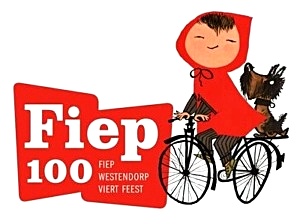 In de tentoonstelling komen o.a. reclamewerk voor de KLM, voorlichtingsbrochures voor het Zuivelbureau en de NVSH en vroeg illustratiewerk waaronder vele boekcovers en affiches aan bod. Twintig jaar lang, van 1948 tot 1968, werkte Fiep Westendorp voor de vrouwenpagina van het Parool. Bij de soms serieuze artikelen van schrijfsters als Harriët Freezer en Annie M.G. Schmidt maakte zij juist humoristische tekeningen. Voor de bundeling van deze columns maakte Fiep Westendorp ook de boekomslagen.
In de tentoonstelling komen o.a. reclamewerk voor de KLM, voorlichtingsbrochures voor het Zuivelbureau en de NVSH en vroeg illustratiewerk waaronder vele boekcovers en affiches aan bod. Twintig jaar lang, van 1948 tot 1968, werkte Fiep Westendorp voor de vrouwenpagina van het Parool. Bij de soms serieuze artikelen van schrijfsters als Harriët Freezer en Annie M.G. Schmidt maakte zij juist humoristische tekeningen. Voor de bundeling van deze columns maakte Fiep Westendorp ook de boekomslagen.
Voor de Illustratie Biënnale, gesponsord door de Fiep Westendorp Foundation, vroeg de organisatie tien illustratoren een omslagillustratie te maken voor hun favoriete boek. Deze omslagen zijn te zien in de tentoonstelling. Eens in de twee jaar bekroont de Fiep Westendorp Foundation werk van jonge illustratoren. Van hun werk zijn filmpjes te zien die inzicht geven in het creatieve proces.
Kinderen en volwassenen kunnen samen van deze tentoonstelling genieten. Voor kinderen is er een route met speelse opdrachten. In een speciale tekenkamer kan de bezoeker zelf aan de slag. Hoe komt een boekillustratie tot stand? Wat maakt een illustratie van Fiep Westendorp zo krachtig en herkenbaar? De activiteiten zijn opgenomen in de agenda van Museum Meermanno.
De tentoonstelling is een samenwerking met Fiep Amsterdam bv, samensteller is directeur drs. Gioia Smid. Met dank aan Fiep Amsterdam bv, de Fiep Westendorp Foundation, het Mondriaanfonds, het VSB fonds en Stichting Zabawas.
Langs de bibliotheken
Om zoveel mogelijk mensen te laten genieten van het werk van Fiep Westendorp organiseert Museum Meermanno samen met Fiep Amsterdam bv naast deze tentoonstelling een compacte bibliotheek-expositie die het verhaal vertelt van Fiep Westendorp als illustrator. Deze tentoonstelling reist van mei 2016 tot eind 2017 langs tachtig bibliotheken door het hele land.
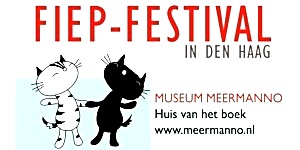 2016 Jubileumjaar Fiep
2016 Jubileumjaar Fiep
Op 17 december 2016 is het 100 jaar geleden dat Fiep Westendorp werd geboren. Het werk van de illustratrice is nog altijd springlevend. Haar tekeningen hebben al vele generaties een bijzondere plek in de harten van jong en oud. Vanaf juni 2016 tot en met december 2017 wordt de 100ste verjaardag van Fiep Westendorp in heel Nederland gevierd met een jubileumjaar vol activiteiten.
De tentoonstelling in Museum Meermanno en de reizende tentoonstelling langs de bibliotheken vormen de aftrap voor het Fiep-jaar, waarin ook de Fiep-bus, een vrolijk gedecoreerde dubbeldekker, door het hele land reist.
# Zie voor het hele programma www.100jaarfiepwestendorp.nl
Museum Meermanno | Huis van het boek
Prinsessegracht 30
2514 AP Den Haag
T 070 34 62 700
Dinsdag t/m zondag van 11.00 tot 17.00 uur geopend.
# Meer info op website Museum Meermanno
fleursdumal.nl magazine
More in: Annie M.G. Schmidt, Art & Literature News, Children's Poetry, Exhibition Archive, Illustrators, Illustration

William Shakespeare
(1564-1616)
Romeo & Juliet
“Romeo:
If I profane with my unworthiest hand
This holy shrine, the gentle fine is this:
My lips, two blushing pilgrims, ready stand
To smooth that rough touch with a tender kiss.
Juliet:
Good pilgrim, you do wrong your hand too much,
Which mannerly devotion shows in this;
For saints have hands that pilgrims’ hands do touch,
And palm to palm is holy palmers’ kiss.
Romeo:
Have not saints lips, and holy palmers too?
Juliet:
Ay, pilgrim, lips that they must use in prayer.
Romeo:
O, then, dear saint, let lips do what hands do;
They pray, grant thou, lest faith turn to despair.
Juliet:
Saints do not move, though grant for prayers’ sake.
Romeo:
Then move not, while my prayer’s effect I take.
Thus from my lips, by yours, my sin is purged.
Juliet:
Then have my lips the sin that they have took.
Romeo:
Sin from thy lips? O trespass sweetly urged!
Give me my sin again.
Juliet:
You kiss by the book.”
William Shakespeare, Romeo and Juliet
Shakespeare 400 (1616 – 2016)
fleursdumal.nl magazine
More in: Archive S-T, Romeo & Juliet, Shakespeare, William
 Op het Museumplein en rondom het Leidseplein in Amsterdam presenteert de 39ste editie van de Uitmarkt onverwachte combinaties, theatrale gekte, muziek in alle toonaarden, pop up voorstellingen en een stille disco. Vertrouwde gasten en verrassende nieuwkomers verwelkomen je graag bij hun optredens. Zo pakt Yuri Honing in de Jazz club van het Concertgebouw uit, toont Conny Janssen Danst Courage in de Stadsschouwburg Amsterdam en het muzikale cabaretduo Maartje & Kine gaat los in Bellevue. Met meer dan 350 gratis optredens is de Uitmarkt hét culturele evenement van Nederland.
Op het Museumplein en rondom het Leidseplein in Amsterdam presenteert de 39ste editie van de Uitmarkt onverwachte combinaties, theatrale gekte, muziek in alle toonaarden, pop up voorstellingen en een stille disco. Vertrouwde gasten en verrassende nieuwkomers verwelkomen je graag bij hun optredens. Zo pakt Yuri Honing in de Jazz club van het Concertgebouw uit, toont Conny Janssen Danst Courage in de Stadsschouwburg Amsterdam en het muzikale cabaretduo Maartje & Kine gaat los in Bellevue. Met meer dan 350 gratis optredens is de Uitmarkt hét culturele evenement van Nederland.
Opening: Om 21 uur presenteert Jörgen Raymann op vrijdag 26 augustus het openingsprogramma op het Museumplein, met onder meer Jeangu Macrooy, Lucas Hamming, Capella Amsterdam en Cirque Eloize. The New Cool Collective is de trouwe huisband van dienst deze avond. Zij zetten de toon voor een lang weekend cultuur.
Orkesten: Maar liefst zeven orkesten laten van zich horen op de Uitmarkt, zoals het Jazz Orchestra of the Concertgebouw, het Residentie Orkest en het Orkest van de 18e eeuw. Op zondagavond is de vertrouwde afsluiting met het Metropole Orkest en de Musical Sing a Long.
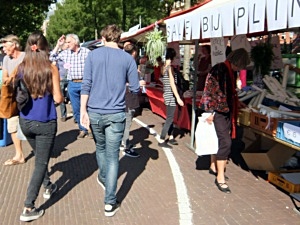 Talent groeit: Naast de grote podia met bekende artiesten is er op de Uitmarkt ook volop ruimte voor jonge talentvolle makers. Kris kras over het Museumplein loopt de Yellow Brick Road waar de nieuwe generatie makers zich presenteert te midden van het publiek. Drijvende kracht achter de Yellow Brick Road zijn de talentontwikkelaars, zoals Nowhere, Solid Ground Movenment, Don’t hit mama, Poetry Circle Nowhere, Spin Off en Theater De Gasten. Op en rondom het Vrije Uitloop-podium pakt het Amsterdam Fringe Festival uit met een theatraal kippenhok.
Talent groeit: Naast de grote podia met bekende artiesten is er op de Uitmarkt ook volop ruimte voor jonge talentvolle makers. Kris kras over het Museumplein loopt de Yellow Brick Road waar de nieuwe generatie makers zich presenteert te midden van het publiek. Drijvende kracht achter de Yellow Brick Road zijn de talentontwikkelaars, zoals Nowhere, Solid Ground Movenment, Don’t hit mama, Poetry Circle Nowhere, Spin Off en Theater De Gasten. Op en rondom het Vrije Uitloop-podium pakt het Amsterdam Fringe Festival uit met een theatraal kippenhok.
Uitmarkt Junior: Speciaal voor de jeugd is er een eigen programma met optredens en activiteiten. Bij Kids@work kunnen kinderen zelf aan de slag – acteren, schilderen of een filmpje maken; het kan allemaal.
Uitmarkt Boeken & Informatie: Welke boeken gaan we lezen en welke exposities en voorstellingen mogen we niet missen? Op de Informatiemarkt presenteren culturele ins1tellingen hun aanbod en op de Uitmarkt Boeken kun je zowel nieuwe schrijftalenten als bekende auteurs spotten.
Uitmarkt 2016
Landelijke opening cultureel seizoen
Op het Museumplein en rondom het Leidseplein in Amsterdam
Vrijdag 26, Zaterdag 27 en Zondag 28 augustus 2016
# Meer info op website Uitmarkt
fleursdumal.nl magazine
foto: fdm mag
More in: Art & Literature News, AUDIO, CINEMA, RADIO & TV, DANCE & PERFORMANCE, Literary Events, MUSIC
Vijf films in de race voor Parel voor de Beste Boekverfilming 2016
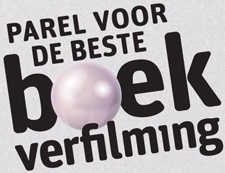 Beyond Sleep, De Helleveeg, Knielen op een bed violen, Schone handen en Publieke Werken dingen mee naar de Parel, de publieksprijs voor de Beste Boekverfilming. Vanaf vandaag kan iedereen tot en met 15 september via een website stemmen op zijn favoriet. Op 16 september wordt op Film by the Sea, het festival voor film en literatuur in Vlissingen, de Parel uitgereikt aan de film die de meeste stemmen heeft behaald.
Beyond Sleep, De Helleveeg, Knielen op een bed violen, Schone handen en Publieke Werken dingen mee naar de Parel, de publieksprijs voor de Beste Boekverfilming. Vanaf vandaag kan iedereen tot en met 15 september via een website stemmen op zijn favoriet. Op 16 september wordt op Film by the Sea, het festival voor film en literatuur in Vlissingen, de Parel uitgereikt aan de film die de meeste stemmen heeft behaald.
De vijf nominaties zijn door bezoekers van Pathé gekozen uit het aanbod aan verfilmingen van oorspronkelijk Nederlandstalige boeken, die uitkwamen tussen 1 juli 2015 en 31 juli 2016. Vorig jaar ontving Still Alice, gebaseerd op het boek Ik mis mezelf van Lisa Genova, de Parel voor de beste Boekverfilming. Dit jaar dingen alleen verfilmingen van oorspronkelijk Nederlandstalige boeken mee naar de Parel.
 De vijf films zijn opnieuw te zien in een groot aantal theaters. Kijk voor meer informatie op www.pathe.nl/parel. Tijdens Film by the Sea, van 9 t/m 18 september, worden naast de genomineerde films, ook I Nostri Ragazzi, J. Kessels,- The Novel en Problemski Hotel vertoond.
De vijf films zijn opnieuw te zien in een groot aantal theaters. Kijk voor meer informatie op www.pathe.nl/parel. Tijdens Film by the Sea, van 9 t/m 18 september, worden naast de genomineerde films, ook I Nostri Ragazzi, J. Kessels,- The Novel en Problemski Hotel vertoond.
Kijk voor meer informatie op www.filmbythesea.nl
Boek en film
Boek en film gaan heel goed samen. Aan menig beroemde film gaat vaak een even beroemd boek vooraf. Denk aan klassiekers als Turks Fruit, Doctor Zhivago, The English Patient en Harry Potter. Of de nieuwe verfilming van De GVR die momenteel voor een verkoopsucces zorgt voor het gelijknamige boek van Roald Dahl.
De genomineerde films voor de Parel zijn gebaseerd op de volgende boeken: Nooit meer slapen (Beyond Sleep), van W. F. Hermans (De Bezige Bij, 1966), De helleveeg van A. F. Th. van der Heijden (De Bezige Bij, 2013), Knielen op een bed violen van Jan Siebelink (De Bezige Bij, 2005), Schone handen van René Appel (Ambo|Anthos, 2007) en Publieke werken van Thomas Rosenboom (Querido, 1999).
Nominaties 2016
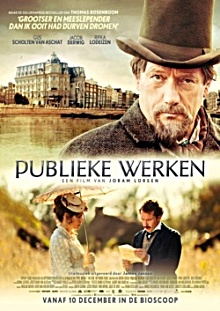 Publieke werken
Publieke werken
Amsterdam, 1888: de getergde vioolbouwer Vedder moet het veld ruimen als zijn huisje moet wijken voor het geplande Victoria Hotel. Zijn overmoedige neef Anijs, apotheker te Hoogeveen, heeft zich door ongeoorloofd medisch handelen ernstig in de nesten gewerkt en zoekt een uitweg.
Filmdistributeur: September Film Distribution
Boektitel: Publieke werken
Auteur boek: Thomas Rosenboom
Uitgeverij: Querido
 Schone handen
Schone handen
Sylvia en Eddie hebben samen twee kinderen. Ze wonen in een groot pand in Amsterdam-Zuid en het ontbreekt hen aan niets. Er is één levensgroot probleem: het vele geld dat Eddie binnenbrengt is crimineel geld. Sylvia heeft zijn activiteiten altijd geaccepteerd, maar haar geweten begint te knagen.
Filmdistributeur: Dutch Filmworks BV
Boektitel: Schone handen
Auteur boek: René Appel
Uitgeverij: Ambo|Anthos
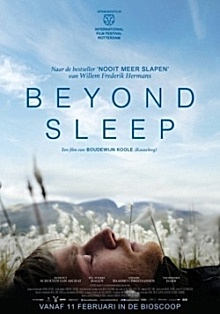 Beyond sleep
Beyond sleep
Nooit meer slapen is het verhaal van de jonge geoloog Alfred Issendorf, die in het moerassige noorden van Noorwegen onderzoek wil verrichten om de hypothese van zijn leermeester en promotor Sibbelee te staven. Issendorf is ambitieus: hij hoopt dat hem op deze reis iets groots te wachten staat.
Filmdistributeur: September Film Distribution
Boektitel: Nooit meer slapen
Auteur boek: Willem Frederik Hermans
Uitgeverij: De Bezige Bij
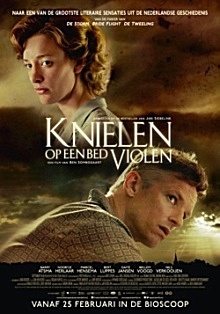 Knielen op een bed violen
Knielen op een bed violen
Op een beslissend punt in zijn volwassen bestaan heeft Hans Sievez een diep-religieuze ervaring; hij is ervan overtuigd voor een kort moment in direct contact met God te hebben gestaan. In de daarop volgende zoektocht naar zingeving en het eeuwige leven verliest hij het zicht op de werkelijkheid en het contact met zijn omgeving. De relatie met zijn vrouw en zoons komt onder grote druk te staan.
Filmdistrib.: September FilmDistrib.
Boektitel: Knielen op een bed violen
Auteur boek: Jan Siebelink
Uitgeverij: De Bezige Bij
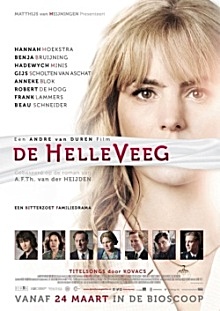 De helleveeg
De helleveeg
Tiny lijdt behalve aan smetvrees ook aan een dwangmatig scherpe tong. Voor Albert is tante Tiny, schertsend Tientje Poets genoemd, even afschrikwekkend als intrigerend. Eenmaal zelf volwassen geworden stuurt Albert aan op een grote confrontatie, waarbij eindelijk alle familiegeheimen aan het licht komen.
Filmdistributeur: eOne
Boektitel: De helleveeg
Auteur boek: A.F.Th. van der Heijden
Uitgeverij: De Bezige Bij
# Stemmen kan op website Besteboekverfilming
fleursdumal.nl magazine
More in: A.F.Th. van der Heijden, Art & Literature News, AUDIO, CINEMA, RADIO & TV, Jan Siebelink, WF Hermans
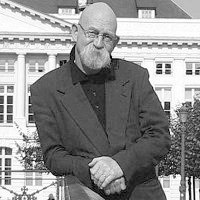
Kringloop
Bij avondval vermoed ik uitgestorven kampen:
Het spit wildloos, verwaaiende koude asch.
Dan keert de jager huiswaarts, zonder buit.
In zijn hoofd dansen prooien en schreeuwen.
’s Nachts zijn dromen gevuld met rakelingse speren.
De driften in zichzelf gevlucht: alles om te vergeten.
Vergeefs pogen, pogen. Steeds maar weer.
Bert Bevers
Uit Afglans – Gedichten 1972-1997, Uitgeverij WEL, Bergen op Zoom, 1997
fleursdumal.nl magazine
More in: Archive A-B, Bevers, Bert
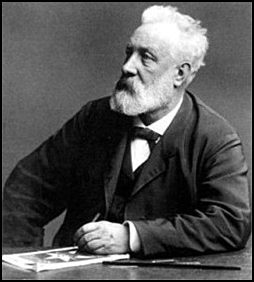
José-Maria de Heredia
(1842 – 1905)
Les Funérailles
Vers la Phocide illustre, aux temples que domine
La rocheuse Pytho toujours ceinte d’éclairs,
Quand les guerriers anciens descendaient aux enfers,
La Grèce accompagnait leur image divine.
Et leurs Ombres, tandis que la nuit illumine
L’Archipel radieux et les golfes déserts,
Écoutaient, du sommet des promontoires clairs,
Chanter sur leurs tombeaux la mer de Salamine.
Et moi je m’éteindrai, vieillard, en un long deuil ;
Mon corps sera cloué dans un étroit cercueil
Et l’on paîra la terre et le prêtre et les cierges.
Et pourtant j’ai rêvé ce destin glorieux
De tomber au soleil ainsi que les aïeux,
Jeune encore et pleuré des héros et des vierges.
José-Maria de Heredia poésie
fleursdumal.nl magazine
More in: Archive G-H, CLASSIC POETRY
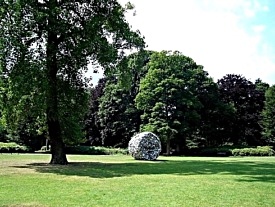 Na bijna vijfentwintig jaar beeldende kunstprojecten in zeer uiteenlopende segmenten van de openbare ruimte georganiseerd te hebben, zet Fundament een punt achter dit nomadische bestaan en kiest voor een vaste locatie, een ‘eigen huis’: park De Oude Warande in Tilburg. Dit betekent dat er voortaan jaarlijks exposities plaatsvinden in De Oude Warande, waardoor dit belangrijke culturele erfgoed binnen enkele jaren uit kan groeien tot internationaal erkend podium voor hedendaagse sculptuur. Hiervoor is het nodige voorwerk al gedaan. Tussen 2000 en 2015 vonden er de eerste vijf edities van Lustwarande plaats. Bovendien realiseerde Fundament in 2009 het door Callum Morton ontworpen paviljoen Grotto voor het middelpunt van het park. In het kader hiervan vond tevens de expositie Stardust plaats. Lustwarande heeft zich inmiddels bewezen als een van de belangrijkste internationale buitenexposities in Nederland, met lovende persreacties uit binnen- en buitenland en hoge bezoekersaantallen. De expositie wordt dan ook beschouwd als een vaste waarde binnen het beeldende kunstlandschap van Nederland.
Na bijna vijfentwintig jaar beeldende kunstprojecten in zeer uiteenlopende segmenten van de openbare ruimte georganiseerd te hebben, zet Fundament een punt achter dit nomadische bestaan en kiest voor een vaste locatie, een ‘eigen huis’: park De Oude Warande in Tilburg. Dit betekent dat er voortaan jaarlijks exposities plaatsvinden in De Oude Warande, waardoor dit belangrijke culturele erfgoed binnen enkele jaren uit kan groeien tot internationaal erkend podium voor hedendaagse sculptuur. Hiervoor is het nodige voorwerk al gedaan. Tussen 2000 en 2015 vonden er de eerste vijf edities van Lustwarande plaats. Bovendien realiseerde Fundament in 2009 het door Callum Morton ontworpen paviljoen Grotto voor het middelpunt van het park. In het kader hiervan vond tevens de expositie Stardust plaats. Lustwarande heeft zich inmiddels bewezen als een van de belangrijkste internationale buitenexposities in Nederland, met lovende persreacties uit binnen- en buitenland en hoge bezoekersaantallen. De expositie wordt dan ook beschouwd als een vaste waarde binnen het beeldende kunstlandschap van Nederland.
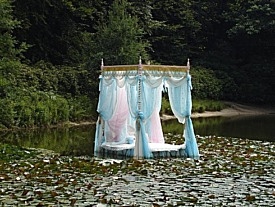 De zesde editie van Lustwarande staat gepland voor de zomer van 2019. Daaraan voorafgaand vinden er exposities en projecten in het park plaats die kleiner van opzet zijn en een striktere thematiek kennen. Luster – Clay in Sculpture Today is de eerste manifestatie van dit nieuwe beleid. Deze expositie, die plaatsvindt van 17 september tot en met 30 oktober 2016, sluit aan bij de hernieuwde belangstelling voor het gebruik van klei en keramiek in de hedendaagse kunst maar gaat een stap verder door kunstenaars uit te dagen nieuwe werken te maken voor de natuurlijke, openbare ruimte van De Oude Warande.
De zesde editie van Lustwarande staat gepland voor de zomer van 2019. Daaraan voorafgaand vinden er exposities en projecten in het park plaats die kleiner van opzet zijn en een striktere thematiek kennen. Luster – Clay in Sculpture Today is de eerste manifestatie van dit nieuwe beleid. Deze expositie, die plaatsvindt van 17 september tot en met 30 oktober 2016, sluit aan bij de hernieuwde belangstelling voor het gebruik van klei en keramiek in de hedendaagse kunst maar gaat een stap verder door kunstenaars uit te dagen nieuwe werken te maken voor de natuurlijke, openbare ruimte van De Oude Warande.
Luster zal nieuwe werken tonen van elf internationale kunstenaars: Caroline Coolen (BE) – Daniel Dewar & Grégory Gicquel (GB/FR) – Alexandra Engelfriet (NL) – Guido Geelen (NL) – Cameron Jamie (USA) – Markus Karstieβ (DE) – Marien Schouten (NL) – Johan Tahon (BE) – Gert & Uwe Tobias (RO) – Anne Wenzel (DE) – Jesse Wine (GB)
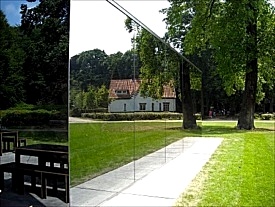 Het aantal exposities dat de laatste jaren uitsluitend gewijd is aan het gebruik van keramiek in de hedendaagse kunst is opmerkelijk te noemen. Deze groeiende belangstelling kan verklaard worden in het licht van de terugkeer naar het kleinschalige en het lokale, de herontdekking van de natuur en van wat ‘oer’ is, het streven naar duurzaamheid, het consuminderen, de bio- en paleo-trends, guerilla-tuinieren en urban farming, slow cooking en de revival van het bakken en breien, dat alles, in een breder kader, als actieve bijdrage aan een betere leefwereld en omgang met de aarde. Het gaat in deze visie om een pas op de plaats, een herbezinning op onze ethische waarden, vanuit het besef dat de aarde niet onuitputtelijk is. Een herverkenning van het klassieke ambacht, een associatie die onlosmakelijk met klei verbonden is, sluit hier naadloos bij aan. Kunst die van klei gemaakt is neemt bovendien een speciale positie in. Klei als materiaal dat door de kunstenaar met de blote hand bewerkt wordt, verbindt het lichaam direct met de aarde, zowel in de betekenis van globe als van grond, modder en land.
Het aantal exposities dat de laatste jaren uitsluitend gewijd is aan het gebruik van keramiek in de hedendaagse kunst is opmerkelijk te noemen. Deze groeiende belangstelling kan verklaard worden in het licht van de terugkeer naar het kleinschalige en het lokale, de herontdekking van de natuur en van wat ‘oer’ is, het streven naar duurzaamheid, het consuminderen, de bio- en paleo-trends, guerilla-tuinieren en urban farming, slow cooking en de revival van het bakken en breien, dat alles, in een breder kader, als actieve bijdrage aan een betere leefwereld en omgang met de aarde. Het gaat in deze visie om een pas op de plaats, een herbezinning op onze ethische waarden, vanuit het besef dat de aarde niet onuitputtelijk is. Een herverkenning van het klassieke ambacht, een associatie die onlosmakelijk met klei verbonden is, sluit hier naadloos bij aan. Kunst die van klei gemaakt is neemt bovendien een speciale positie in. Klei als materiaal dat door de kunstenaar met de blote hand bewerkt wordt, verbindt het lichaam direct met de aarde, zowel in de betekenis van globe als van grond, modder en land.
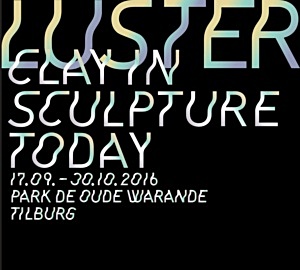 Luster – Clay in Sculpture Today sluit aan bij de hernieuwde belangstelling voor het gebruik van klei en keramiek in de hedendaagse kunst maar gaat een stap verder door kunstenaars opdrachten te verstrekken om werken in klei en keramiek te maken voor de openbare ruimte. Op twee verschillende manieren worden de werken daardoor dichter bij hun oorsprong gebracht. Enerzijds vloeit het ontstaan van keramische kunst immers voort uit toepassingen van keramiek in de openbare ruimte, namelijk gevelbekleding zoals die aan het einde van de 19e eeuw in nieuwe architectuur werd toegepast. Anderzijds worden de nieuwe werken in klei en keramiek direct verbonden met de aarde, waar hun materialiteit aan onttrokken is, door de werken te presenteren in de natuurlijke context van De Oude Warande. De kunstenaars worden daarbij uitgedaagd om hun gangbare praktijk in te passen in de mogelijkheden en onmogelijkheden van die publieke, natuurlijke omgeving.
Luster – Clay in Sculpture Today sluit aan bij de hernieuwde belangstelling voor het gebruik van klei en keramiek in de hedendaagse kunst maar gaat een stap verder door kunstenaars opdrachten te verstrekken om werken in klei en keramiek te maken voor de openbare ruimte. Op twee verschillende manieren worden de werken daardoor dichter bij hun oorsprong gebracht. Enerzijds vloeit het ontstaan van keramische kunst immers voort uit toepassingen van keramiek in de openbare ruimte, namelijk gevelbekleding zoals die aan het einde van de 19e eeuw in nieuwe architectuur werd toegepast. Anderzijds worden de nieuwe werken in klei en keramiek direct verbonden met de aarde, waar hun materialiteit aan onttrokken is, door de werken te presenteren in de natuurlijke context van De Oude Warande. De kunstenaars worden daarbij uitgedaagd om hun gangbare praktijk in te passen in de mogelijkheden en onmogelijkheden van die publieke, natuurlijke omgeving.
De expositie focust op een selectie van kunstenaars bij wie klei al lang of zelfs altijd al een vooraanstaande positie in hun oeuvres heeft ingenomen, vanuit de vraagstelling wat hun nieuwe, voor de openbare ruimte gemaakte werken kunnen betekenen voor het begrijpen van de actuele wereld. Met deze selectie zullen verschillende aspecten van hedendaagse keramische sculptuur aan de orde gesteld worden: de betekenis van schaal (van miniatuur tot monumentaal), van bewerkingsprocessen (van ruw tot geglazuurd en ready-made), de esthetiek van kleur en glans (die van het materiaal versus de toevoeging van pigmenten en lusters) en de functies van ordening, het aardse, ritueel en mythe.
Luster – Clay in Sculpture Today
17 september tot en met 30 oktober 2016
Caroline Coolen (BE) – Daniel Dewar & Grégory Gicquel (GB/FR) – Alexandra Engelfriet (NL) – Guido Geelen (NL) – Cameron Jamie (USA) – Markus Karstieβ (DE) – Marien Schouten (NL) – Johan Tahon (BE) – Gert & Uwe Tobias (RO) – Anne Wenzel (DE) – Jesse Wine (GB)
Ingang: Bredaseweg 441 (parkeerplaats Auberge du Bonheur) – Tilburg
Openingstijden: dagelijks van zonsop- tot zonsondergang.
Openingstijden info-unit: 11.30 – 16.30 u.
Verzochte entree: 5 € (volwassenen) / 4 € (studenten) / tot 18 jaar gratis
Organisatie: Stichting Fundament Tilburg
# meer informatie op website www.fundamentfoundation.nl/
Foto’s archief Fleursdumal.nl Magazine
fleursdumal.nl magazine
More in: Art & Literature News, Dutch Landscapes, Exhibition Archive, Fundament - Lustwarande, Sculpture
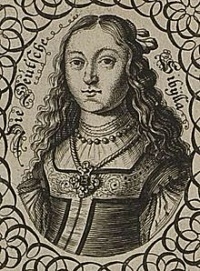
Sibylla Schwarz
(1621 – 1638)
Poëten gehn
dem unadelichen Adel
weit vohr
Ob zwar mein schlechter Leib
zu deme sich muß halten
was schlecht und niedrig ist
und lassen alles walten
was reiche Güter hat
was grossen Titul führet
was Weißheit
Kunst und Lob mit
blassem Ansehn zieret.
So bleibt dennoch mein Sinn
allzeit am Himmel kleben
da ein Poëte kan
ohn Schimpff und Schaden leben
da niemand sagen kan: Sih
diser geht dich für!
da keine Leumder sein
da bloß des Himmels Zier
mit ihnen Sprache helt
da alles muß erbleichen
da ein vom Adel muß
dem schlechsten Diener weichen.
Und wenn ein hoher Heldt
bey seinem Degen geht
der sehe sich wohl für
daß er ja feste steht;
denn wer
auß Hoffahrt nur
den Degen angehencket
dem wird gemeinlich auch
der Schwerdter Schmach geschenket
und wenn die Hoffart denn
wird endlich untergehn
wird der Poëten Volck
doch immer oben stehn.
Sibylla Schwarz poetry
fleursdumal.nl magazine
More in: Archive S-T, SIbylla Schwarz
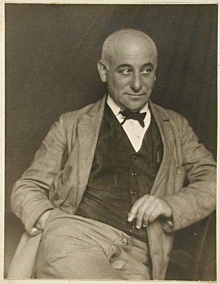
Max Jacob
(1876 – 1944)
Flagellation, Etc
« Vous avez promené le jet entre
Mes
Côtes « de la lampe à souder, le fouet des démons ! »
Aïe ! oh ! oh! le sang lent ; l’Esprit est sur la motte.
Sang à la cloque : il coule !
la cloque et les ampoules !
Qui ?
Le dieu architecte, l’ingénieur, l’ingénieur !
Hors des apparences, derrière le grillage.
Son Œil pense le sous-sol est tout ce qui fait vivre l’essence or sous le fouet le
Triste-Sire percé comme une poêle à frire pense l’espace et ce qui passe.
Vous avez promené la lampe des démons
Aïe, oh ! oh ! la faulx sur le corps de satin, la faulx qui n’est pas loin des jambes.
La fleur s’inclina sous le fouet de la lampe.
Qui ? l’inventeur des lois, aïe ! oh ! oh !
Lois du monde derrière la mer, et l’air créé ; derrière les ondes. «
Donner
Mon sang d’engrais d’esprit à vous, les bêtes, « sous la poutre et tomber aux brancards d’une charrette. «
Sang au pavé, le bois aux ressauts du pavé ! »
Fin de mort ! on est arrivé !
Mains clouées ! laissez faire : c’est pour l’humanité.
Crevez la peau, le muscle et séparez les os.
Crevez le pied, les pieds : c’est pour la vérité.
Le bois l’auguste bois percé par la ferraille. «
Je suis le dieu des dieux, l’odorante aubépine. «
Regardez-moi les yeux, je parle de partout. »
Max Jacob poetry
fleursdumal.nl magazine
More in: Archive I-J, Jacob, Max
Thank you for reading Fleurs du Mal - magazine for art & literature